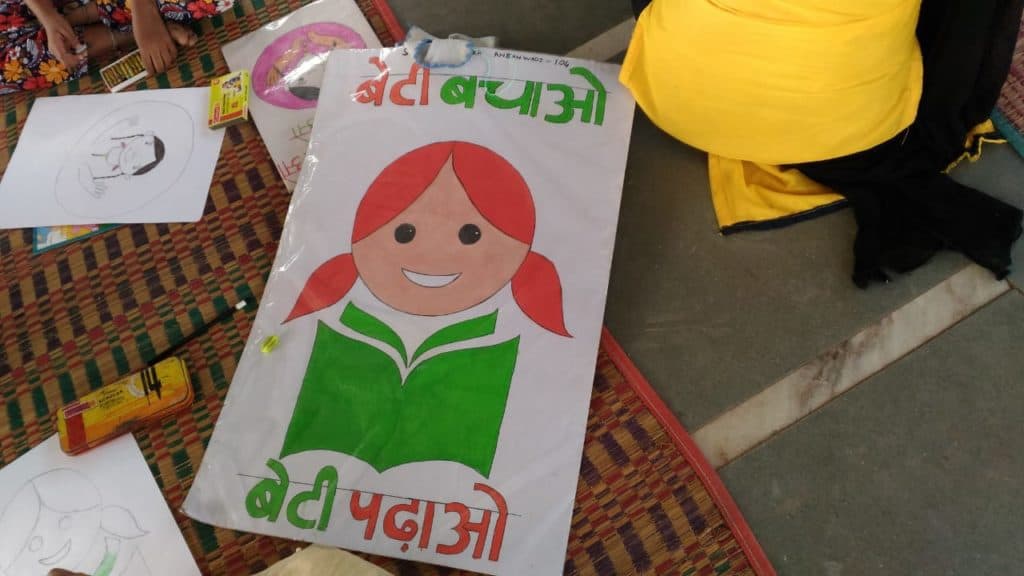Children are our present citizens and our future leaders. They have a right to their basic needs being met, to enjoy a safe, nurturing and healthy childhood.
The United Nations Convention on the Rights of the Child is an important agreement, of which India is also a signatory. However, in practice, children’s rights are far from being met.
I bring you experiences of three young adults, from different areas of Mumbai, which highlight the layered challenges of online education faced by young girls since the onset of the pandemic.
Their personal development has been threatened due to several adverse factors. While Deepa has been forced to work early, Riya is unable to give enough time to study given the pressures at home, and Ruksat has dropped out of school. The girls mentioned do not feel safe in their homes and communities.
Balancing work and study
Deepa (name changed), a 17-year-old girl from Parel, says that the worst impact of the lockdown has been in terms of the financial problems it has kickstarted within her family. ‘I want to continue my studies’, she said. She took up a a job to help her family financially, earning Rs 100 per day by surveying her community. “My father is a vegetable vendor. When the lockdown began in 2020 our school started online classes. I managed to get an old phone of my uncle to attend online classes, but as the mobile was not in a good condition and many of its buttons did not work, sometimes it would switch off in between the class. I found it very difficult to keep up with the lessons,” she said.
Deepa also added that the frequent mobile recharges were a financial strain, and once she had managed it she would sometimes miss out on classes due to connectivity issues or find it difficult to understand the lectures as the poor network would cause the voice of her teacher to break. Deepa acknowledges the huge gap between online and offline learning methods. “Just like a health centre is critical, we also need a network centre, where WiFi will be available for our study,” she added.
Deepa wants to do a lot in her life but at the moment she feels extremely constrained. She said that although she has been promoted to the next standard, as she couldn’t learn much in the past few months she doesn’t know how she will cope up in the future.
Deepa also loves to engage in different activities, but since the pandemic began, she has had to take on many household responsibilities, such as looking after her younger brother, cooking for her family and also assisting in a tiffin service her family started during the lockdown. This further reduced her time of study and pursuit of interests. She would often get time to complete her homework only at night, continuing on till 3 or4 am.

Chores come in the way of studies
Riya (name changed), a 15-year-old from Matunga, also shared how the lockdown has had a deep impact on her studies. Unfortunately, Riya lost her mobile phone soon after the online classes started. Her prelim exam was scheduled for the day when she lost her mobile phone. She reached out to her teacher who said if she did not manage to give her exam somehow on that day, they would not let her appear for her board examinations.
Riya also mentioned how in the days leading to the exam she found it difficult to follow online lessons. “When we used to go to school we asked our doubts to the teacher from the textbook,” said Riya. Now, she is expected to study from the textbook. “I find that hard,” she said.
Read more: Introducing Mumbai’s history through children’s books
Riya’s mother loaned some money from her neighbours to buy a new mobile phone, but that device also had a display issue soon after, so they borrowed a phone from Riya’s uncle. Riya said many girls are facing a problem similar to hers. She added, ‘When people’s hunger needs are only not getting satisfied, where will they go to buy mobile devices for online education’.
Riya also shared how their common community toilet has been broken. Currently she needs to go to the nearest railway station toilet, which is a 15-minute walk from their community. Sometimes Riya mentioned she feels too tense, whether she should help in the house to try to study. Further, with frequent arguments between her parents, due to their financial worries, the situation at home has been very tense.
Riya also shared how her parents have raised their hands on them in this time, something that did not happen earlier. ‘If the pandemic doesn’t end soon, maybe we will only eat when we get food, else sleep hungry. Our education has already been affected. My parents hope that with the education I will make them proud, but how will I do that?’
Dropping out of school
Ruksat (name changed), a 17-year-old from Mandala also shared how the lockdown has affected her studies. “In 2020 I was in the 10th standard, but our exam was cancelled and they promoted us. I feel an entire year of mine has been wasted. I did not take admission for the 11th standard as we did not have enough money” she said.
Ruksat also added that her younger sister could not attend classes as the family returned to the village. When they returned, they could not afford the fees so her sister too has dropped out of school. Ruksat also mentioned how she did not feel safe in her community in the lockdown phase, as many of the men would be sitting around and playing cards.
Also read: